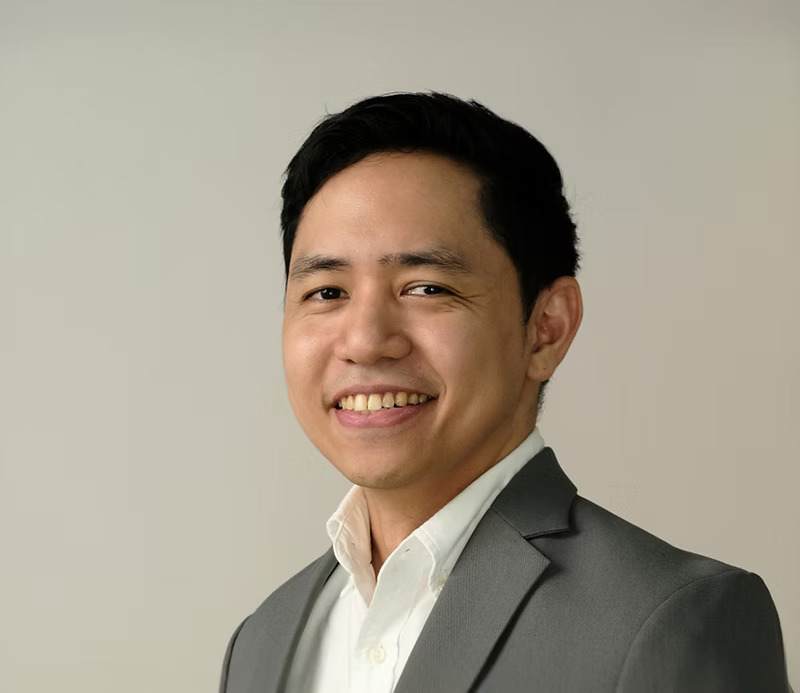
Dr. Theo Prudencio Juhani Z. Capeding
Health Governance Flagship Program Head, ACRI
Research Interests
Our Team
Contact Details
About
Dr. Theo Prudencio Juhani Z. Capeding conducts research on health systems, policy, and program implementation at the Ateneo Center for Research and Innovation. His research portfolio includes qualitative action studies on neonatal care access and comprehensive analyses of health policies, including the Universal Health Care Act. As faculty at the Ateneo School of Government, he guides students on health governance, bringing his research insights directly into the classroom. Beyond his academic role at Ateneo, Dr. Capeding brings extensive field experience as a public health practitioner and physician. He serves as Executive Director of the Philippine Foundation for Equity in Health and Secretary-General of the Philippine Society of Public Health Physicians, where he oversees mission operations and collaborates with various technical working groups. His leadership extends to forming strategic partnerships across government agencies, NGOs, and corporate sectors to advance public health initiatives. Dr. Capeding's academic credentials include a Master of Science in Public Health from the London School of Hygiene and Tropical Medicine, a Master of Public Management from the Development Academy of the Philippines, and a Doctor of Medicine degree from the University of the Philippines-Manila. This combination of rigorous academic training and practical experience in health systems strengthens his contributions to both research and education at Ateneo.
-
Health Systems
The Hidden Crisis: How Health Workforce Issues Are Undermining Universal Healthcare in the Philippines
The Philippines, one of the world's largest exporters of healthcare workers—particularly nurses—is struggling to retain professionals needed to implement its UHC vision. With only 7.92 physicians per 10,000 population (below the ideal ratio of 10 per 10,000) and an estimated shortage of 127,000 nurses, the country faces acute shortages that prevent optimal implementation of health programs.
-
Health Systems
Health workforce issues and recommended practices in the implementation of Universal Health Coverage in the Philippines: a qualitative study.
The Philippines' Universal Health Coverage program faces a critical workforce crisis that threatens its very foundation. A new Ateneo de Manila University study reveals that while the country exports healthcare workers globally, it struggles to retain the professionals needed for its own ambitious health reforms. With only 7.92 physicians per 10,000 population and a shortage of 127,000 nurses, systemic barriers—from restrictive hiring policies to uncompetitive salaries—are driving away the very people meant to deliver healthcare for all Filipinos. The research identifies promising solutions, including scholarship programs and comprehensive benefits, but warns that without addressing these fundamental workforce issues, universal healthcare remains at risk.
-
Health Systems
The Hidden Crisis: How Health Workforce Issues Are Undermining Universal Healthcare in the Philippines
The Philippines, one of the world's largest exporters of healthcare workers—particularly nurses—is struggling to retain professionals needed to implement its UHC vision. With only 7.92 physicians per 10,000 population (below the ideal ratio of 10 per 10,000) and an estimated shortage of 127,000 nurses, the country faces acute shortages that prevent optimal implementation of health programs.
-
Health Systems
Health workforce issues and recommended practices in the implementation of Universal Health Coverage in the Philippines: a qualitative study.
The Philippines' Universal Health Coverage program faces a critical workforce crisis that threatens its very foundation. A new Ateneo de Manila University study reveals that while the country exports healthcare workers globally, it struggles to retain the professionals needed for its own ambitious health reforms. With only 7.92 physicians per 10,000 population and a shortage of 127,000 nurses, systemic barriers—from restrictive hiring policies to uncompetitive salaries—are driving away the very people meant to deliver healthcare for all Filipinos. The research identifies promising solutions, including scholarship programs and comprehensive benefits, but warns that without addressing these fundamental workforce issues, universal healthcare remains at risk.
